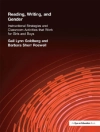A compelling biography of a key figure of the Harlem Renaissance, an eminent Chicago-trained sociologist, and a pioneering race relations leader.
The milestones for blacks in twentieth-century America-the Harlem Renaissance, the struggle for equal education, and the civil rights movement-would have been inconceivable without the contributions of one important but often overlooked figure, Charles S. Johnson (1893–1956). This compelling biography demonstrates the scope of his achievements, situates him among other black intellectuals of his time, and casts new light on a pivotal era in the struggle for black equality in America.
An impresario of Harlem Renaissance culture, an eminent Chicago-trained sociologist, a pioneering race relations leader, and an educator of the generation that freed itself from legalized segregation, Johnson was a visionary who linked the everyday struggles of blacks with the larger intellectual and political currents of the day. His distinguished career included twenty-eight years at Fisk University, where he established the famed Race Relations Institute and became Fisk’s first black president.
Innehållsförteckning
Foreword by David Levering Lewis
Acknowledgments
1. From Bristol to Nashville
2. From Riot to Renaissance
3. The Mentor: Robert E. Park
4. The Park-Johnson Model
5. The Johnson Model
6. Park to Johnson to Myrdal
7. Internationalism: Between the World Wars
8. The Department of Social Sciences
9. Beyond the Classroom: Service Intellectual
10. The Publications
11. The Best of Booker T. Washington
12. The Rest of Booker T. Washington
13. The Department of Race Relations: Confronting de facto Segregation
14. The Race Relations Institutes: Confronting de jure Segregation
15. Internationalism: World War II and the Cold War
16. Conflict over Fisk Leadership
17. The Basic College: Nurturing Scholars and Leaders
18. The Red Scare Hits Home
19. Solomon on the Cumberland
Epilogue
Appendix I. Interviews Conducted in Preparation of the Text
Appendix II. Books Authored by Charles S. Johnson
Appendix III. Manuscript Collection Used in Text
Notes
Index
Om författaren
After a career as a university history professor for many years, Patrick J. Gilpin was admitted to the Texas State Bar and began practicing law in 1980. His practice is primarily in the area of civil rights. Marybeth Gasman is Assistant Professor of Higher Education at the University of Pennsylvania.












